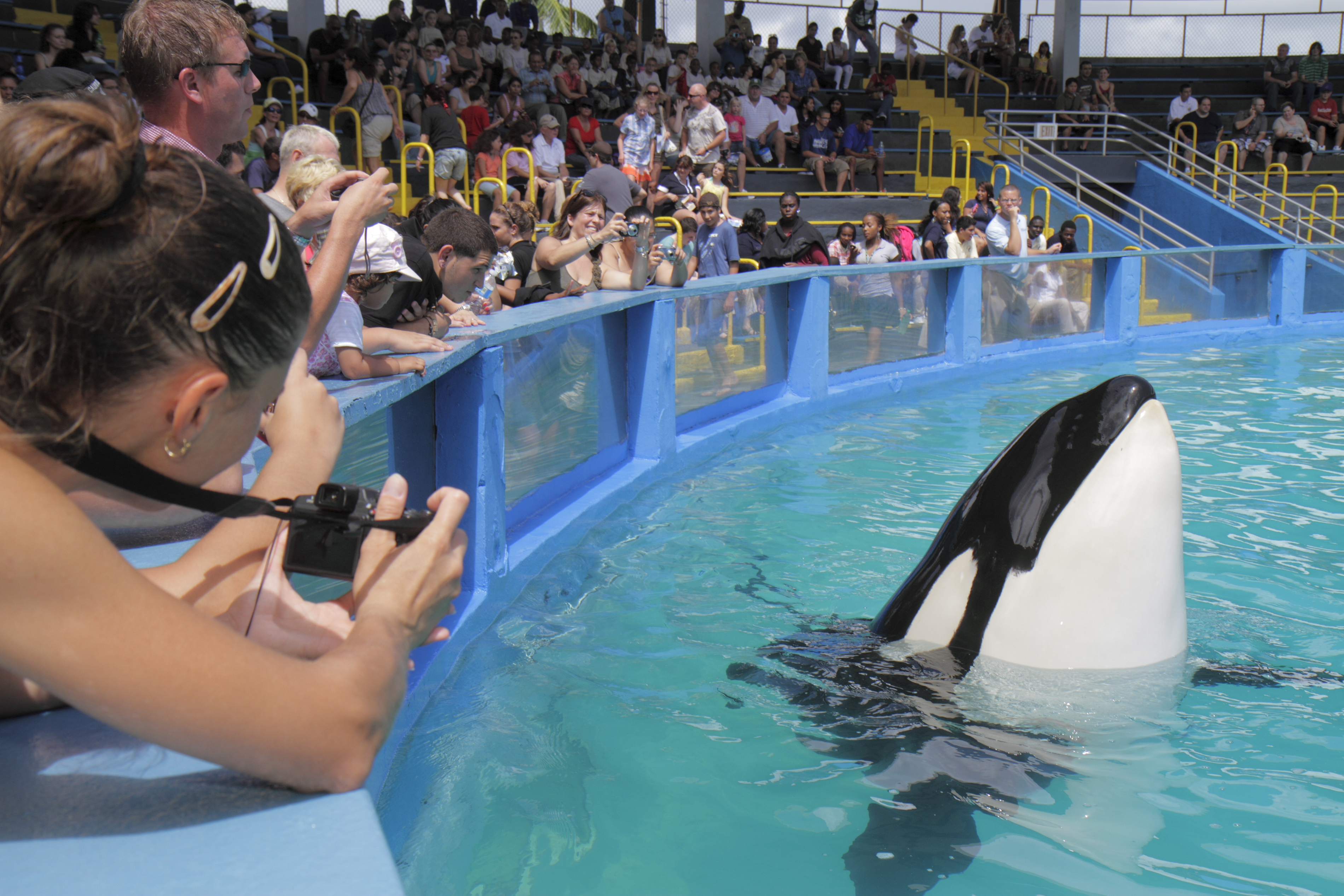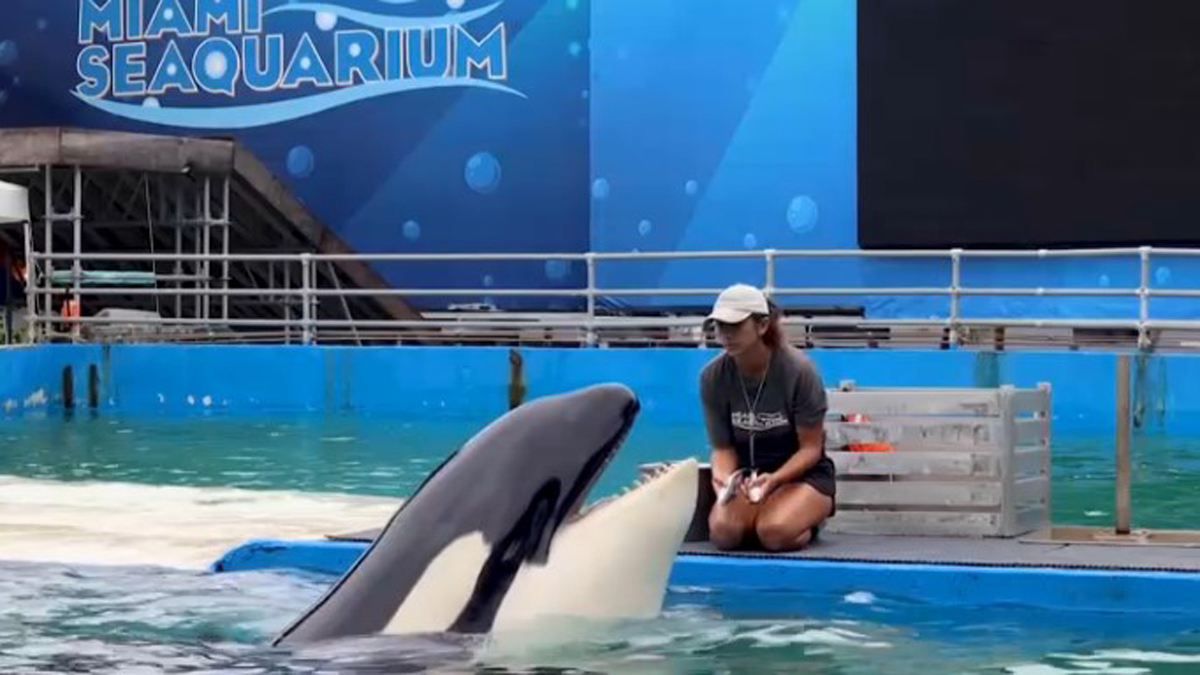South Florida said goodbye to the beloved orca Lolita after more than five decades.
After spending the majority of her life at the Miami Seaquarium, Lolita died Friday following a sudden illness.
The orca, also known as Toki or Tokitae, passed away from what's believed to be a renal condition, the Seaquarium said.
She was estimated to be around 57 years old, making her one of the oldest killer whales in captivity.
The Hurricane season is on. Our meteorologists are ready. Sign up for the NBC 6 Weather newsletter to get the latest forecast in your inbox.
In the more than 50 years she spent at Miami Seaquarium, Lolita brought both joy and sadness to her many fans and supporters.
While she entertained countless guests, she also sparked controversy and outrage from animal rights activists who protested her living conditions.
Here's a look back at the life, legacy and controversy of Lolita.
Before she was Lolita, she was Toki
In 1970, Toki — later known as Lolita — was captured from her pod in Puget Sound, which is an inlet in the Pacific Ocean near Washington State.
Toki was sold to the Miami Seaquarium for about $20,000, and she arrived at 4 years old in late September of 1970.
She was said to be "depressed" upon her arrival, refusing to eat. Toki was then put into a tank with Hugo, another orca who was captured from Puget Sound a year and a half before she was.

Hugo later died in 1980 from a brain aneurysm. Since then, Toki has either lived alone or with dolphins.
Puget Sound orcas were put on the endangered species list in 2005, but captive animals like Toki were excluded from protection.
Toki then spent five decades at the Miami Seaquarium, where she performed for crowds of hundreds under the name "Lolita."
What was the controversy surrounding Lolita?
For years, animal rights activists have protested Lolita's life in captivity, calling for her to be moved back to her home pod in Puget Sound.
Miami Seaquarium eventually bowed to public pressure and announced in March that there were plans to move Lolita to an ocean sanctuary in Washington state within the next two years.
However, many activists argue that the plans to relocate Lolita came far too late.
REMEMBERING LOLITA
Protestors focused primarily on her living conditions, with many saying that her pool at the Seaquarium was far too small.
However, the park has said previously that Lolita's habitat exceeds the minimum requirements established by the Animal Welfare Act regulations.
Just as recently as Tuesday, officials at the Miami Seaquarium said Lolita was experiencing stable health as they continued preparations to move her to her home waters in the Pacific.
They also announced that Lolita’s pool had received more than $500,000 in improvements including new chillers, filter media, an ozone generator to replace chlorine and numerous regulators and pumps, officials said.
Then, news of the whale's death came suddenly on Friday, sparking outrage among animal rights groups who said the improvements came too little, too late.
Protesters with PETA and other animal rights groups gathered outside the Seaquarium following the news of Lolita's death, holding signs that read "Captivity killed Lolita" and "Lolita deserved to be free." They chanted "Shame on you" as a tractor-trailer that presumably held the orca's body drove by.
Lolita's sudden death rocks the community
The news of Lolita's death came as a sudden shock to much of South Florida and beyond.
Just days prior to her passing, officials had said Lolita was "eating well," which included up to 115 pounds of salmon, herring, capelin and squid each day.
They also said she had been swimming laps, playing with toys and soliciting attention from her trainers.
Then suddenly, she was gone.
"Over the last two days, Toki started exhibiting serious signs of discomfort, which her full Miami Seaquarium and Friends of Toki medical team began treating immediately and aggressively," the Seaquarium said in a statement. "Despite receiving the best possible medical care, she passed away Friday afternoon."
The Seaquarium announced it would be closed Saturday in the wake of Lolita's death.
"Toki was an inspiration to all who had the fortune to hear her story and especially to the Lummi nation that considered her family," the Seaquarium's statement read. "Those who have had the privilege to spend time with her will forever remember her beautiful spirit."
Miami-Dade Mayor Daniella Levine Cava said she was "profoundly saddened" to learn of Lolita's sudden passing.
"Our shared goal has been to increase transparency, create accountability, and strengthen collaboration at the Miami Seaquarium for the benefit of the animals in their care," Levine Cava said in a statement. "We were proud of the immense progress made over the last 12 months, from the successful transfer of ownership of the Miami Seaquarium to The Dolphin Company, the unprecedented collaboration with the Friends of Toki, and the most recent announcement of her relocation to the wild. Our collective wish was to see Toki in her native waters and we are heartbroken to learn of this sudden loss."



